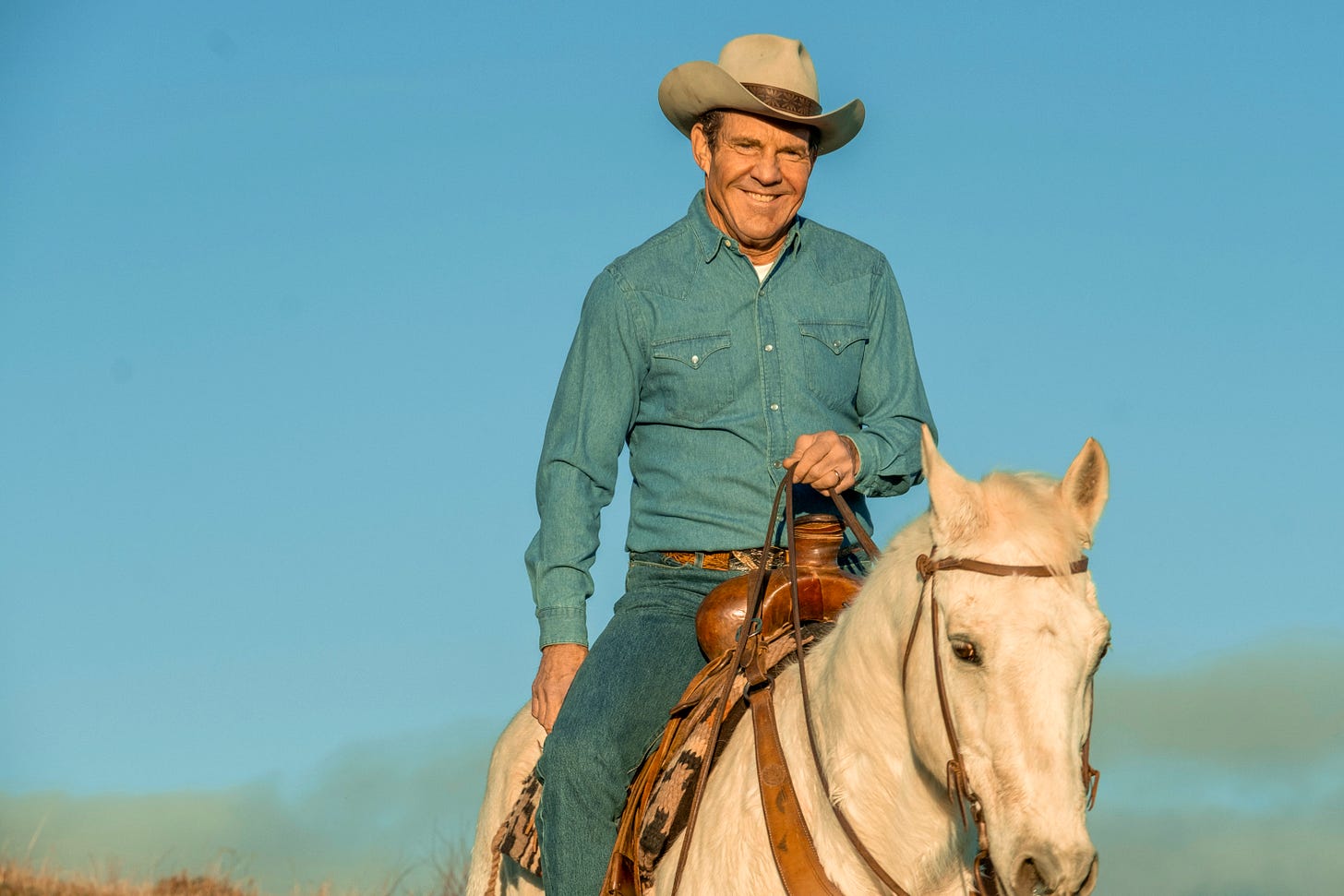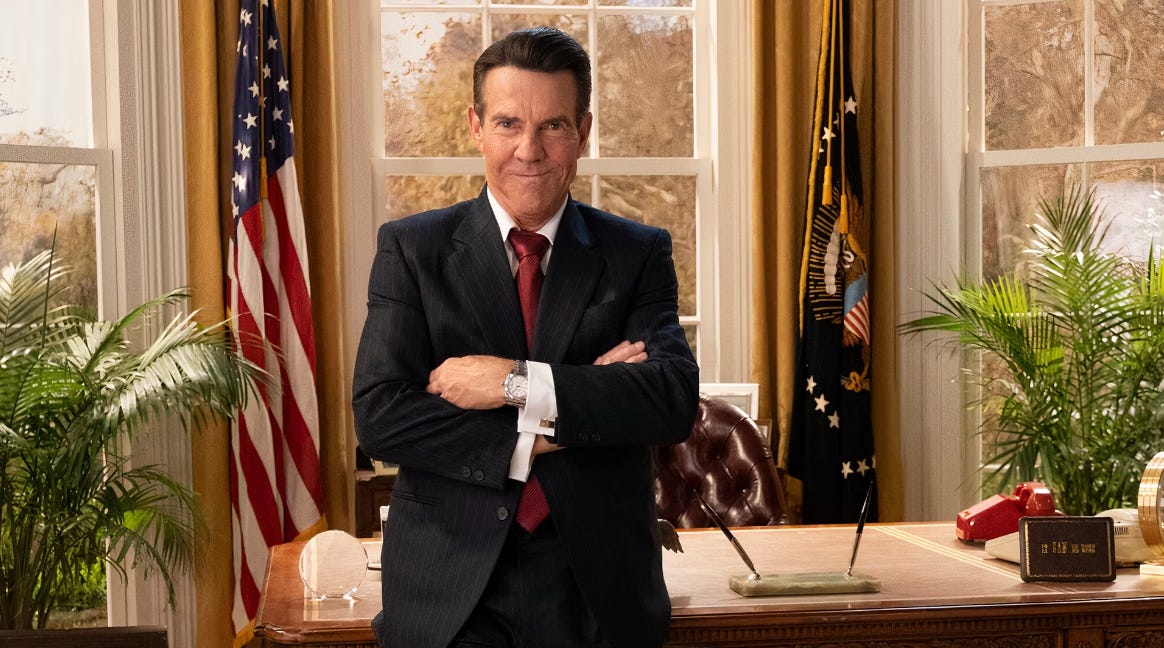The Recklessness of "Reagan" (2024)
Nothing good comes out of sterilizing history.
To call this film anything other than propaganda would be naive. It’s not hyperbolic to say that Reagan treats the 40th president like a god among men — a man who did nothing wrong his entire life and was a savior to the world. No matter what one’s own opinion about Reagan is (I’d say he’s average among other presidents), it’s simply a matter of fact that this movie is completely irresponsible in its rose-colored portrayal of Reagan’s life, particularly the 1980s. There are a few things that define the Reagan Revolution: Reaganiomics, the War on Drugs, Cold War, AIDS crisis, and (if you’re a little bit more aware of history) the Iran-Contra affair. In this film, directed by Sean McNamara (the visionary behind such films as The Suite Life Movie and Bratz Kidz: Sleep-Over Adventure) the most “entertaining” of all those parts of his presidency, the Cold War, takes center stage for the latter two-thirds of the film. This wasn't surprising but every other aforementioned episode of America in the '80s is suppressed beyond belief.
To say the least, McNamara’s direction is subpar in its rush through every moment of Reagan’s life, yet another repeated fault of the mainstream approach to a true story: telling 90 years of a major public figure in the span of two hours and change. The lack of depth demerits the importance of certain events such as the AIDS crisis — which, literally, appears in the film for two full seconds as (not verbatim) “# people died of AIDS while Reagan did nothing” flashes on the screen, making me do a genuine double-take — and the Iran-Contra scandal, which exists in this movie as a mere footnote. Including both of these major parts of Reagan’s presidency serve one purpose: to paint Reagan as a victim. When a typical few minute-long montage of news footage plays and the Iran-Contra scandal comes to some sort of conclusion, his wife Nancy (who the movie gives less agency to than a rock, despite her role in the film being that of Reagan's marital rock) convinces the president that the criticisms he’s being overwhelmed with are no more than unwarranted personal attacks. And then they hug and kiss and everything is sunny as eye-rolling music sweeps the scene.
Conflict is not a word that exists within the world of Reagan. I’d like to believe even the most patriotic American can see through the ridiculous, idealized vision of the 1980s that this paints. Well, despite this being my first thought once the film ended, the man sitting in front of us in the theater turned around and explained to me how the movie was basically a documentary. I’m not certain that we watched the same movie. That note aside, I keep returning to the ‘80s because even though we “learn” about Reagan’s life from his childhood in 1920s Illinois, the later decade is the most palpable period when it comes to creating a dramatic narrative. The problem is not even that the movie only focuses on the good parts of Reagan’s story (which are sometimes valid), it’s that it refuses to leave room for any nuance or give the viewer time to breathe. It quickly condenses a lot yet feels unbelievably long, and shows events with the implication that everything you need to know about them can be summed up in a sentence-long Google response. Reagan doesn’t encourage learning more about the topic; it lays it out and closes the book on major events within a matter of minutes. And that’s what’s reckless.
There’s a lot more about the film that feels utterly bizarre, from Jon (no “H,” unless he previously owned George Costanza’s car) Voight’s horrible Russian accent as a former KGB agent narrating much of the story, to the lazy titles that appear under secondary characters, which eventually become pointless (you will not remember a single name that appears on screen). Not that anything can top the irony of Bob Dylan's voice playing over the credits, but it’s funny that Dennis Quaid (the best part of the film by the way; he was really well-cast) portrays Reagan since this movie feels like something straight out of Amazon’s The Boys, which stars his son. And the gospel-esque cover of John Denver’s “Take Me Home, Country Roads” serenading Reagan as he rides off into the sunset to end the film is the laughable cap to this truly embarrassing movie.
8/31/24




